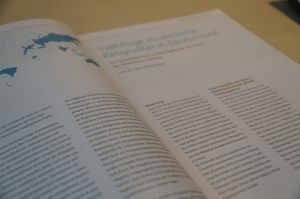Study on the role of Islamic norms in the daily lives of Muslims
Do Islamic commandments play a role when Muslims make decisions on dealing with their property in everyday life? Scientific studies suggest that some Islamic commandments are given more attention than others. EZIRE staff member Stephanie Müssig has found in her systematic review that Muslims follow, in particular, Islamic norms for consumption. Islamic norms dealing with capital goods tend to play a subordinate role in the daily lives of Muslims. In analyzing 20 research papers on the role of Islamic consumption and production commandments in everyday life of Muslims, Stephanie Müssig comes to the following conclusion: Islamic norms that regulate the use of property in relation to consumption influence attitudes and decisions of Muslims in their daily life. This concerns for example the consumption of halal slaughtered meat or the consumption of alcohol, which is forbidden in Islam, but also consumer decisions in general. By contrast, Islamic norms that regulate the use of capital goods are given less significance. Thus, Islamic norms hardly play a role when Muslims make investment decisions or when it comes to their corporate governance. For the systematic review, Stephanie Müssig has searched six major electronic journal databases on Social Sciences and Islamic Studies by research until August 2013 which deal empirically with the importance of Islamic norms regarding consumption and production issues of Muslims in Western Europe. The author was able to identify 20 relevant research papers of which she evaluated the results. The systematic review is published in the “Journal of Muslims in Europe” under the title “Muslims’ Day-to-Day Handling of Property and the adherence to Islamic norms. A Systematic Review of Studies for Western Europe” appeared. The study was developed within the ANR-DFG project “Understanding Property in Muslim Transitional Environments (PROMETEE)”.
